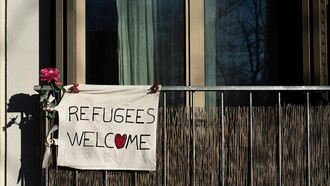Irani President Raisi died in a helicopter crash along with the country’s foreign minister on May 19, 2024. There is a lot of debate on where Iran will be heading after his death and how much influence Raisi had over the country’s foreign policy. Many analysts mistakenly think that he was very influential. For example, Syeda Alizeh Ahmed, in The future of Pak-Iran relations after Ebrahim Raisi, published in Express Tribune on May 20, 2024, gave too much weight to Raisi as an architect of Iran’s foreign policy and argued:
The death of Ebrahim Raisi injects a substantial degree of uncertainty into the future of Pakistan-Iran relations. Economic collaborations, regional geopolitical strategies, and security cooperation all stand at a crossroads. The new Iranian leadership's approach will be critical in determining whether these relations deepen or deteriorate. It is imperative for both nations to engage in proactive diplomacy and leverage their shared interests to navigate this period of transition. Building on the foundation laid during Raisi’s tenure, with an emphasis on dialogue and pragmatic cooperation, could help mitigate the uncertainties and foster a stable and mutually beneficial relationship1.
The truth of the matter is that Iran is an authoritarian state where the Rahbar or supreme leader, not the president, dominates the country’s foreign policy. Peter Beaumont, in his article Iran’s supreme leader sets its hardline foreign policies: expect more of the same, published in The Guardian, May 20, 2024, has stated:
Foreign policy in Iran—including on the key nuclear issue—is set by the supreme leader, Ali Khamenei, and the supreme national security council. Raisi and Abdollahian represented, in different ways, the enactment of the hardline policies that have come to the fore since Raisi was maneuvered into the president’s office in 2021 with substantial assistance from Khamenei and the council of guardians, a powerful decision-making body.
All of which makes any question of a new direction in Tehran’s foreign policy a longer-term issue, and one that is ultimately tied to who succeeds Khamenei as supreme leader —not least after the death of Raisi, who, along with Khamenei’s son Mojtaba, was seen as a potential leader—[…] the key determinants were likely to be a combination of Khamenei’s succession and the “outsized influence” of the IRGC, which together “have come to define the Islamic Republic and its place in the world.” Although Khamenei has been the IRGC’s foremost benefactor, he has at times acted to constrain its ambitions.
This is especially so regarding foreign policy, where Khamenei has generally favored a gradualist approach, one that has sought to balance Iran’s assertiveness with a desire to limit escalation. The IRGC’s top brass regularly praise Khamenei for his wisdom in strategic matters, but are also decidedly less patient, and would likely adopt a more aggressive posture—and employ military force more readily—was the leader amenable2.
Much earlier, Iran had achieved a remarkable milestone by improving relations with its erstwhile rival, Saudi Arabia. Later two important developments occurred. Firstly, with Pakistan: President Raisi's very recent visit to Pakistan after the tit-for-tat missile strikes which in itself was only significant in symbolizing the normalization of relations between the two erstwhile strained neighbors, nothing more than that. Secondly with Iran when Iran very recently engaged in a tit-for-tat missile strike with another sworn enemy, Israel.
Today, Iran is caught in the middle of a conflict with the US. The US and Iran are sworn rivals. American efforts to contain Iran go back decades. The United States has sanctioned hundreds of Iranian individuals and entities accused of having links with the banned Iranian IRGC like the Hezbollah, Houthis, and Hamas. Earlier in April 2024, the UK and the US imposed a new round of sanctions after Iran’s unprecedented attacks on Israel. Pakistan has little option but to go slow in developing its relationship with Iran. Given these developments, the foreign policy of Iran isn’t expected to change much in the future. Only a very significant regional development like a peace deal between Hamas and Israel happens, which is remote.
References
1 Syeda Alizeh Ahmed, “The future of Pak-Iran relations after Ebrahim Raisi,” Express Tribune, May 20, 2024,
2 Peter Beaumont, “Iran’s supreme leader sets its hardline foreign policies: expect more of the same”, The Guardian, May 20, 2024,














